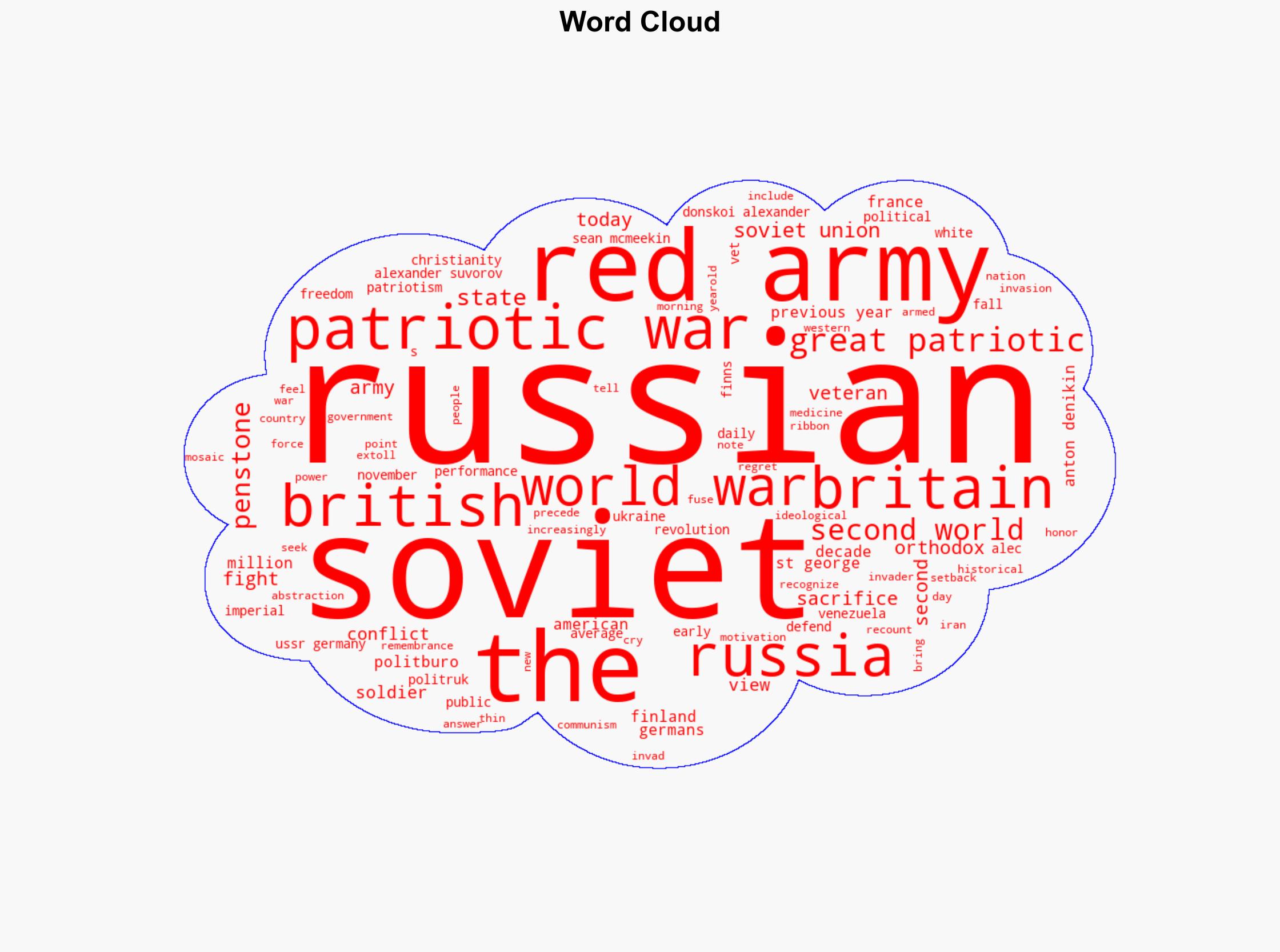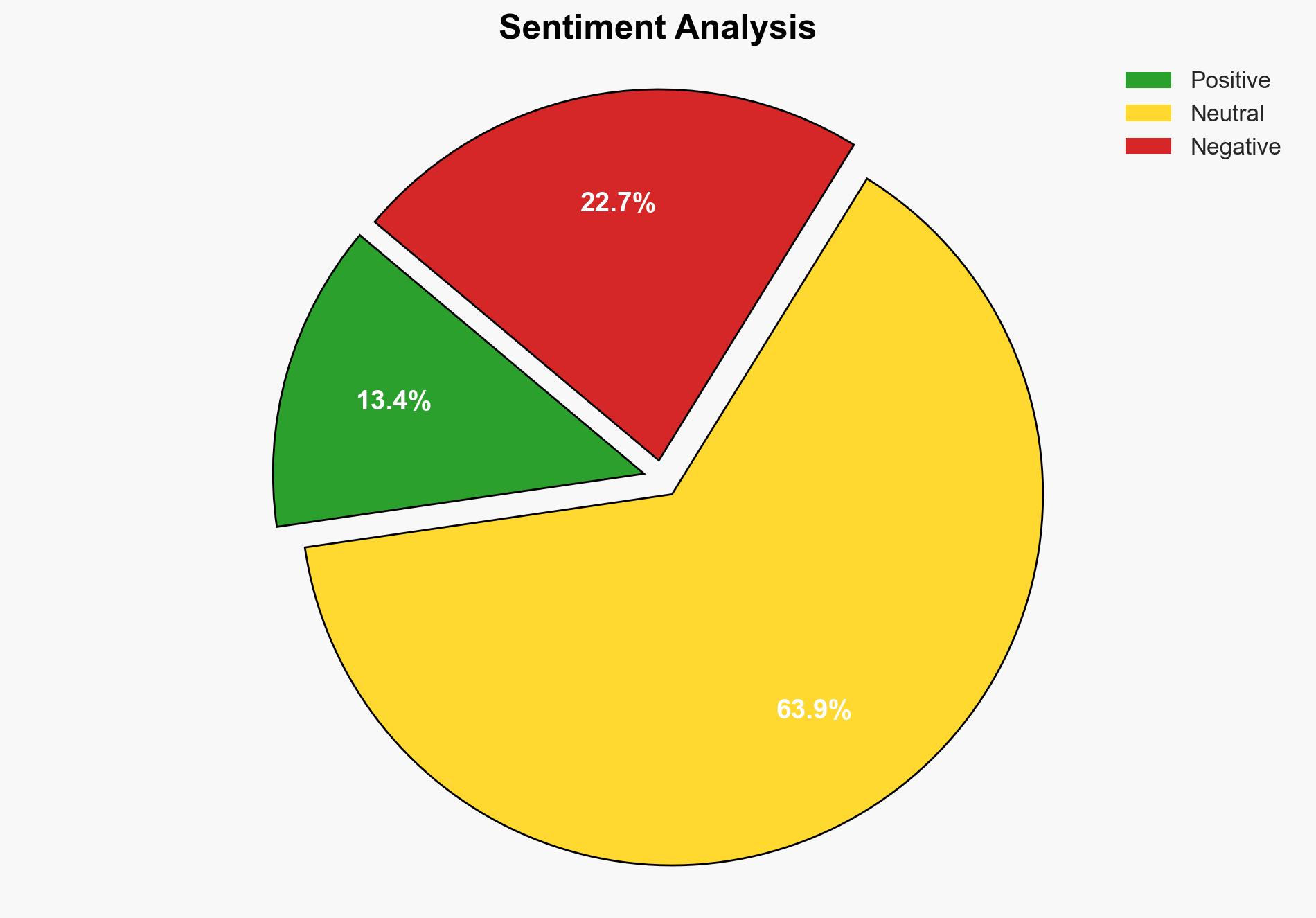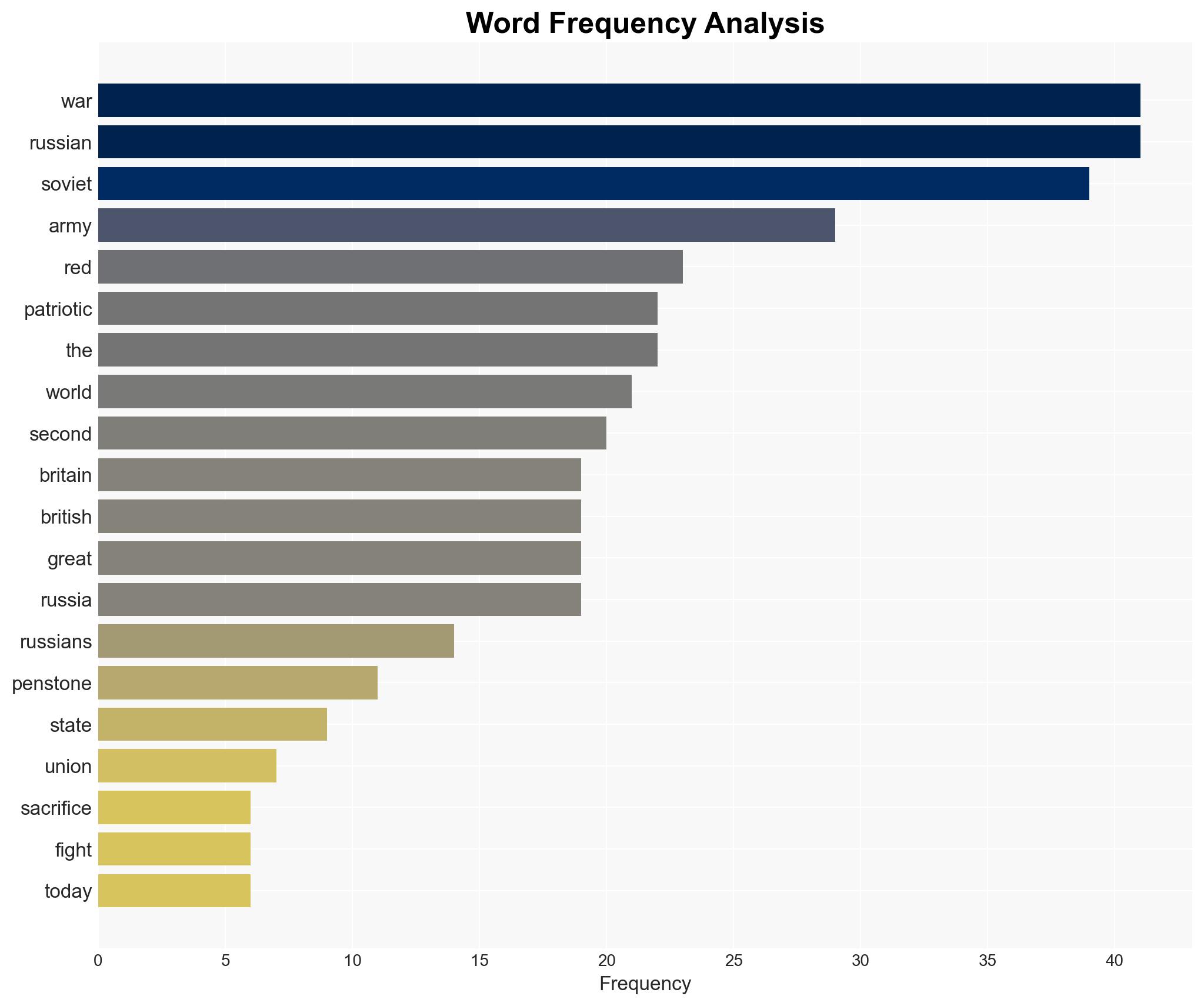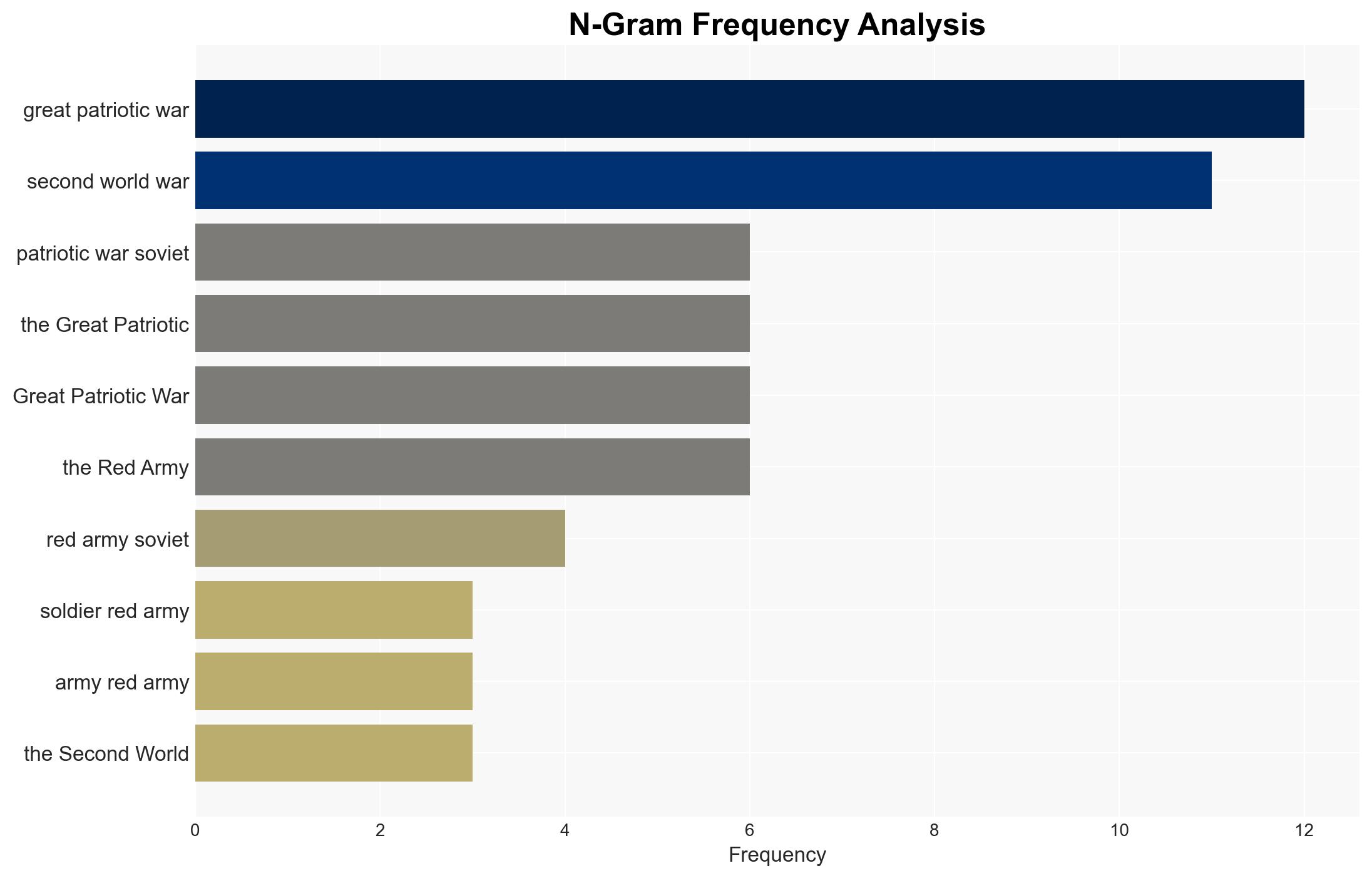Why Is This Second World War Vet Crying – The American Conservative
Published on: 2025-11-16
AI-powered OSINT brief from verified open sources. Automated NLP signal extraction with human verification. See our Methodology and Why WorldWideWatchers.
Intelligence Report:
1. BLUF (Bottom Line Up Front)
The strategic judgment is that the public discourse surrounding World War II veterans, particularly Alec Penstone’s comments, reflects a broader tension between historical memory and contemporary national identity. The most supported hypothesis is that Penstone’s comments are indicative of a shift in British public sentiment towards a more critical examination of historical narratives. Confidence Level: Moderate. Recommended action includes fostering open dialogues about historical narratives to promote understanding and reconciliation.
2. Competing Hypotheses
Hypothesis 1: Alec Penstone’s comments reflect a growing disenchantment among British veterans and the public with the glorification of World War II, suggesting a shift towards a more nuanced understanding of historical events.
Hypothesis 2: Penstone’s comments are isolated and do not represent a broader shift in public sentiment, but rather highlight individual discontent that is amplified by media narratives.
Hypothesis 1 is more likely due to the increasing public discourse questioning traditional narratives and the comparison with Russian veterans’ perspectives, which suggests a broader trend of re-evaluating historical events.
3. Key Assumptions and Red Flags
Assumptions: It is assumed that Penstone’s comments are representative of a wider sentiment among veterans. It is also assumed that media coverage accurately reflects public discourse.
Red Flags: Potential media bias in amplifying certain narratives over others. The risk of overgeneralizing individual opinions as representative of a broader group.
Deception Indicators: Lack of corroborative data from other veterans or public opinion polls could indicate a skewed representation of the issue.
4. Implications and Strategic Risks
The discourse around World War II veterans could lead to increased polarization in public opinion, potentially impacting national unity. There is a risk of political exploitation of these narratives, leading to divisive rhetoric. Additionally, there may be implications for international relations, particularly with countries like Russia, where historical narratives are also contentious.
5. Recommendations and Outlook
- Encourage educational initiatives that promote a balanced understanding of historical events.
- Facilitate veteran forums to discuss and share diverse perspectives on historical narratives.
- Best-case scenario: Increased public understanding and reconciliation of historical narratives.
- Worst-case scenario: Heightened public division and exploitation of narratives for political gain.
- Most-likely scenario: Gradual shift towards a more critical examination of historical narratives, with ongoing public debate.
6. Key Individuals and Entities
Alec Penstone – British World War II veteran whose comments sparked public discourse.
7. Thematic Tags
Regional Focus, Regional Focus: United Kingdom, Russia
Structured Analytic Techniques Applied
- Causal Layered Analysis (CLA): Analyze events across surface happenings, systems, worldviews, and myths.
- Cross-Impact Simulation: Model ripple effects across neighboring states, conflicts, or economic dependencies.
- Scenario Generation: Explore divergent futures under varying assumptions to identify plausible paths.
Explore more:
Regional Focus Briefs ·
Daily Summary ·
Support us
·





